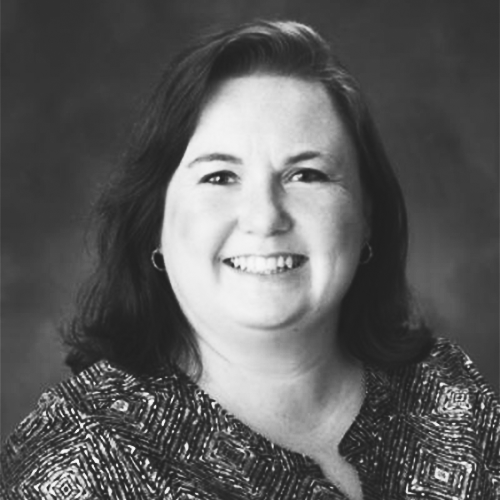Elizabeth A. Bihn is a Senior Extension Associate in the Department of Food Science at Cornell University. She is currently the director of the Produce Safety Alliance and program coordinator for the National Good Agricultural Practices (GAPs) Program. The main focus of her work is to reduce microbial risks to fresh fruits and vegetables through research and extension programs developed for and in collaboration with growers, farm workers, produce industry personnel, students, teachers, and consumers. Betsy received her B.S. from Ohio State University in zoology, M.S. from the University of Florida in horticulture, and Ph.D. from Cornell University in food science.

Produce Safety Alliance Grower TrainingCornell Course
Course Overview
This Produce Safety Alliance Grower Training curriculum has been specifically designed to provide a foundation of Good Agricultural Practices (GAPs) knowledge that includes emphasis on co-management of food safety and environmental management goals, while outlining the requirements in the Food Safety Modernization Act (FSMA) Produce Safety Rule. Though the development of this curriculum was focused on small farms, the need to understand and reduce microbial risks during the production of fruits and vegetables should be important to every grower. The farming environment naturally has many microbial risks, so to protect the fruits and vegetables that are grown and packed on the farm, every grower needs to know how to identify and reduce risks. In addition, buyer demand for food safety practices, and the first ever regulation of fresh produce outlined in the FSMA Produce Safety Rule, make knowledge about produce safety important to overall farm viability.
Every participant will be able to download the 340-page PSA Grower Training manual for their use during the course and reference after the course. All who successfully complete will earn a Certificate from the Association of Food and Drug Officials (AFDO) through Produce Safety Alliance at Cornell University, College of Agriculture and Life Sciences Produce Safety Alliance.
IMPORTANT INFORMATION – PLEASE READ
Due Dates: Most of the dues dates in the course are recommendations (all requirements must be completed by the end of the course session), but one is a requirement. You MUST successfully complete one required discussion by the 14th day of this 21-day course. A discussion is “successfully completed” when the instructor reviews and accepts your submission. You may not wait until the last few days to submit all of the Required Discussions so be sure you have time within the first two weeks of the course before you register.
Training Manual: An electronic version (PDF) of the printed manual is provided for course participants to use as a reference. All of the information in the printed manual is in the Online course. Course participants are STRONGLY recommended to order a printed copy of the PSA Grower Training manual ($50 plus shipping) from the NYSAES bookstore. Participants with the printed manual report that they used it extensively as they went through the course.
Note for New York Participants: You do not need to purchase the printed manual. It will be provided to you through the New York grant. When enrolling, please be sure to include your mailing address as you create your user account.
Certificate: In order to receive your Association of Food and Drug Officials (AFDO) certificate, when enrolling, please be sure to include your mailing address as you create your user account.
Alternate Languages: The course is currently only available in English. You must be fluent in English to register. The development team is working on a Spanish-language version.
Key Course Takeaways
- Gain the foundational skills of GAPs, co-management information, and FSMA Produce Safety Rule requirements
- How to develop a farm food safety plan
- Identify microbial risks, learn practices that reduce risks, and how to begin implementing produce safety practices on the farm

How It Works
Course Authors
Don is an environmental microbiologist who has collaborated with the Cornell National Good Agricultural Practices Program for nearly a decade on water quality issues related to food safety. For the past five years, he has been an instructor of the online GAPs Produce Safety Course. As a career research scientist and educator, he has 15 years of professional research experience at Battelle Memorial Institute and the U.S. Geological Survey. Over the course of 20 years, he also has served in adjunct teaching roles at Cornell University, the Ohio State University, Auburn University, Columbus State Community College, and Cincinnati State Technical and Community College. His professional experience ranges across development of conceptual models of fate and transport of chemicals and pathogens following introduction to water and water systems, estimating public health consequences, field monitoring of water quality, research into sources of water quality impairment, and laboratory studies to improve monitoring and forensic attribution of contaminants. Don has authored 15 peer-reviewed research articles among other publications that include extension publications, government reports, review articles, and book chapters. His outreach experience includes development of technical seminars and workshops for diverse audiences across a broad spectrum of topics, in particular water quality and GAPs. Dr. Stoeckel joined the Produce Safety Alliance in August 2015 to serve as the Midwest Regional Extension
Associate.
Connie joined the Produce Safety Alliance as the Northwest Regional Extension Associate in August 2017 with over eight years of extension experience in Nebraska and North Carolina and over three years of experience teaching college-level horticulture, microbiology, food science, agroecology, and family and consumer science courses, both on campus and online. Her education and work experience include production, harvest, postharvest handling, processing, and evaluation (quality, safety, sensory) of a variety of agricultural products. She is passionate about teaching the information and skills growers need to produce safe, high quality crops for fresh and processing markets and comply with buyer requirements and government regulations. Connie received her B.S. in Nutrition and Food Management and her M.S. in both Food Science & Technology and Horticulture from Oregon State University and her Ph.D. in Horticultural Science from NC State University. Follow her on Twitter @connie_fisk.
Who Should Enroll
- Fruit and vegetable growers
- Anyone interested in learning about produce safety, the Food Safety Modernization Act (FSMA) Produce Safety Rule, Good Agricultural Practices (GAPs), or co-management of natural resources and food safety
100% Online
cornell's Top Minds
career



